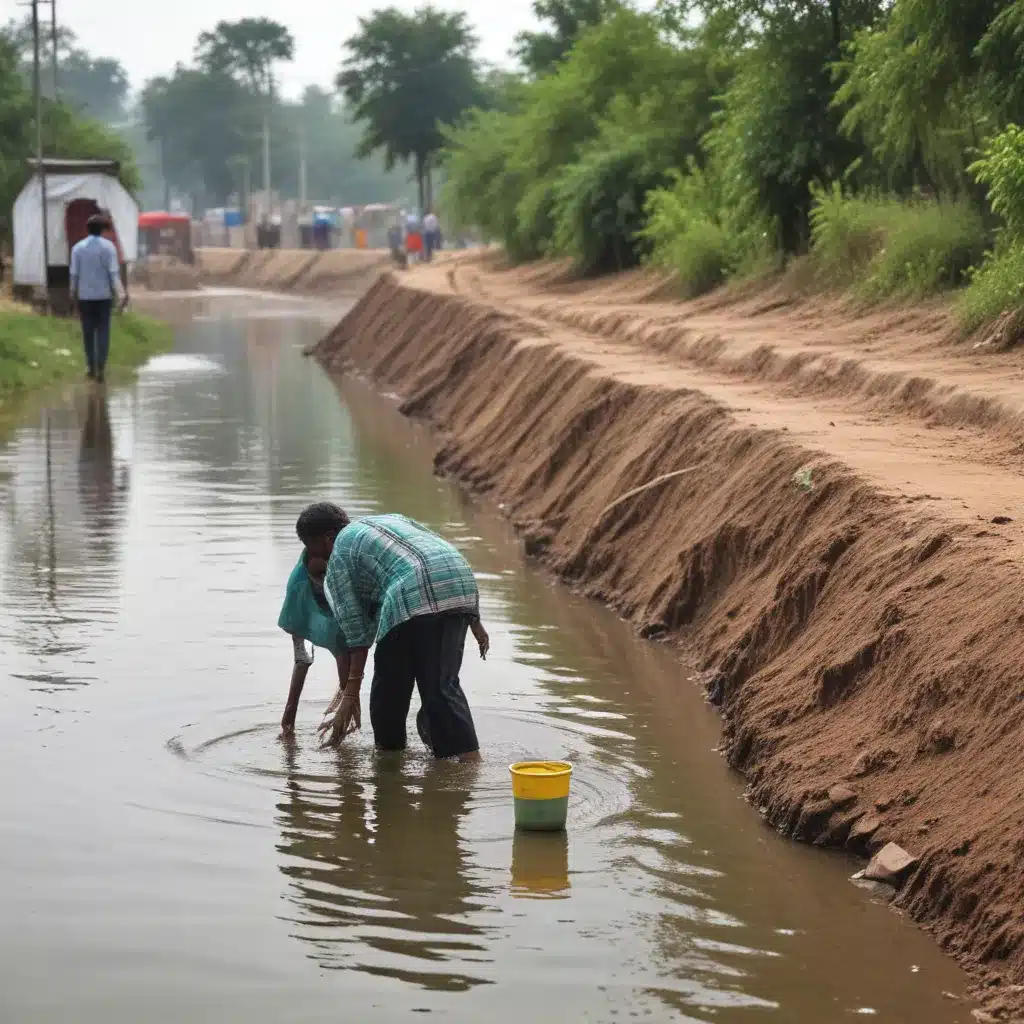
Navigating Water Challenges in a Changing Climate
As a seasoned expert in water and sanitation services, community engagement, and advocacy, I have seen firsthand the critical role that cities like Hyderabad must play in building resilience to the growing impacts of climate change. Hyderabad, the vibrant capital of Telangana, India, faces a complex web of water-related challenges that require innovative, multifaceted solutions.
The city’s water crisis is a stark reminder of the urgent need to address the intersection of gender, climate, and water security. Women and girls in Hyderabad bear the brunt of water scarcity, spending countless hours each day fetching water for their households. This disproportionate burden not only limits their educational and economic opportunities but also puts their health and safety at risk as they navigate long distances to access this basic resource.
To build a more water-resilient Hyderabad, we must prioritize gender-responsive strategies that empower women and girls as leaders and agents of change. By elevating their voices and experiences, we can unlock innovative solutions tailored to the unique needs of the community.
Enhancing Water Infrastructure and Access
One of the key challenges facing Hyderabad is its aging and overburdened water infrastructure. The city’s rapidly growing population has put immense strain on its water supply and distribution systems, leading to frequent water shortages and unequal access, especially in low-income communities.
To address this issue, the local government has invested in expanding and modernizing the city’s water infrastructure. This includes upgrading water treatment plants, laying new pipelines, and implementing smart metering systems to improve water management and conservation.
However, these infrastructure improvements must be accompanied by a gender-responsive approach that ensures equitable access and decision-making. Women, who often bear the primary responsibility for water collection and household management, should be actively involved in the planning, implementation, and monitoring of these projects.
Promoting Community-Based Water Stewardship
Alongside infrastructure upgrades, Hyderabad is also exploring community-based solutions to water management. By empowering local residents, particularly women, to take an active role in water conservation and distribution, the city can foster a sense of ownership and collective responsibility for this vital resource.
One successful initiative is the establishment of women-led water user associations. These groups work closely with local authorities to identify and address water-related challenges, such as leaks, contamination, and equitable distribution. By leveraging their deep understanding of the community’s needs, these associations have been able to develop tailored solutions that improve water access and quality, while also strengthening the capacity of women as leaders and decision-makers.
Advancing Water-Sensitive Urban Design
As Hyderabad continues to grapple with the effects of climate change, such as erratic rainfall patterns and increased flooding, the city is also exploring water-sensitive urban design (WSUD) strategies. WSUD integrates natural water management systems, including stormwater harvesting, groundwater recharge, and sustainable drainage, into the built environment.
By incorporating WSUD principles, Hyderabad can not only enhance its water security but also mitigate the risks of flooding and environmental degradation. These nature-based solutions not only improve water availability but also create green spaces that can help regulate urban temperatures and improve air quality.
Importantly, WSUD approaches should be developed through a gender-inclusive lens, ensuring that the diverse needs and perspectives of women, girls, and marginalized communities are reflected in the design and implementation process. This can help address the disproportionate impacts that climate-related water challenges have on these groups.
Strengthening Collaboration and Knowledge Sharing
Addressing Hyderabad’s water challenges requires a collaborative approach that brings together various stakeholders, including government agencies, civil society organizations, academic institutions, and the private sector. By fostering cross-sectoral partnerships and knowledge sharing, the city can leverage diverse expertise and resources to develop holistic, sustainable solutions.
One promising initiative is the establishment of a multi-stakeholder water forum, where representatives from different sectors can come together to share best practices, identify emerging issues, and coordinate their efforts. This platform can also serve as a hub for capacity-building and training programs, empowering community members, particularly women, to become active participants in water management and decision-making.
Moreover, Hyderabad can learn from the experiences of other cities grappling with similar water-related challenges. By exploring case studies and engaging in peer-to-peer exchanges, Hyderabad can adapt and scale successful strategies, while also contributing its own innovative approaches to the global knowledge base.
Fostering Gender-Responsive Climate Resilience
Underpinning all of these efforts is the recognition that climate change and water security are inextricably linked, and that gender equity must be at the forefront of resilience-building strategies. By integrating a gender lens, Hyderabad can ensure that its water management policies and programs address the unique needs and vulnerabilities of women, girls, and marginalized communities.
This includes, for example, prioritizing the participation of women in decision-making processes, providing targeted training and capacity-building opportunities, and addressing gender-based violence that can arise from water scarcity and climate-related disasters. Additionally, the city can invest in gender-responsive early warning systems and disaster preparedness plans to enhance the resilience of the most vulnerable populations.
Conclusion: Embracing a Sustainable and Equitable Water Future
As Hyderabad navigates the complex challenges of climate change and water security, it is clear that a holistic, gender-responsive approach is essential. By enhancing water infrastructure, promoting community-based stewardship, advancing water-sensitive urban design, and fostering collaborative partnerships, the city can build a more resilient and equitable water future.
At the heart of this transformation lies the need to empower women and girls as leaders, decision-makers, and agents of change. By amplifying their voices and experiences, and integrating their unique perspectives into all aspects of water management, Hyderabad can unlock innovative, community-driven solutions that benefit everyone.
The journey towards water resilience in Hyderabad is not an easy one, but it is a critical one. By embracing a gender-responsive, collaborative, and sustainable approach, the city can pave the way for a more water-secure and climate-resilient future, where all residents have equitable access to this precious resource.

